Marine navigation has come a long way from relying solely on the stars and a map. These days, with the magic of technology, marine GPS systems are the core of safe and efficient navigation. They provide accuracy, reliability, and user-friendly interfaces that make them indispensable. This tech not only helps pinpoint your location but also keeps track of your course, speed, and destinations.
Understanding how these gadgets work is the first step in making the most out of them. Essentially, these systems use satellites to lock onto your position anywhere on Earth. They are engineered to withstand tough environments, but what happens when the intense, salty marine environment starts messing with them? Well, understanding this interplay is what helps in prolonging their life.
Marine GPS technology has evolved rapidly. From bulky, primitive models to sleek, efficient devices, the systems have grabbed hold of invaluable technological advancements. You now have options boasting touchscreen interfaces, integrated sonar, and even weather updates. So, this isn’t just about finding your way home; it’s about exploring the waters with a pocket-sized navigator.
There’s a beauty in knowing the right technological setups keep you safe and explorative on your ventures. By staying informed about how your marine GPS works and its evolution, you’re setting yourself up for a well-informed purchase and maintenance routine that ensures smoother sailing adventures.
Identifying the Threats: Saltwater Damage on GPS Devices
Saltwater isn’t just a picturesque backdrop for your boating adventures; it’s a menace to your electronics. The salty sea breeze and water can wreak havoc on your marine GPS, undoing all that shiny tech you’ve invested in. Understanding how saltwater affects electronics is crucial if you’re aiming to keep your gear in tip-top shape.
Saltwater’s corrosive nature can lead to build-up and damage in your GPS. It seeps into tiny crevices, eating away at circuits and connectors, causing them to malfunction or fail altogether. If your GPS starts showing signs like erratic readings or complete signal loss, you might be dealing with saltwater exposure.
A good pinch of prevention is recognizing damage early. Regular checks can help spot corrosion or moisture before they cause significant harm. Keep an eye out for corroded terminals, inconsistent performance, and any persistent water marks under the casing. These clues are your SOS signals to nip any saltwater issues in the bud.
Ultimately, combating these salty threats keeps your GPS reliable and ensures you’re not left high and dry in the big blue. It’s about staying smart with regular inspections and being proactive whenever you sense your GPS is not acting as it should.
Choosing the Right Equipment: Best Marine GPS for Saltwater
Navigating the high seas calls for a GPS that can keep up without succumbing to the salty challenges. So, picking the right marine GPS specifically designed for saltwater makes all the difference.
When hunting for a GPS built to battle saltwater, focus on units with a waterproof grade, ideally IPX7 or higher. This ensures they can handle a dunk or two without throwing a fit. Also, look for features like corrosion-resistant materials and protective coatings that guard those inner workings.
2025 is bringing a fresh wave of marine GPS offerings. Brands like Garmin, Simrad, and Raymarine are stepping up their game, offering devices known for durability and top-notch features tailored for the wet stuff. They often include integrated fish finding features, Wi-Fi capabilities, and enhanced chart plotting, which are major perks when navigating saltwater environments.
Comparing models is key. Check out specs and user reviews to understand how each stacks up against real-world challenges. Some models boast enhanced visibility under direct sunlight, a significant plus when you’re out on the open water.
Making an informed choice means you’re equipped with gear that’ll stick around longer and save you from frustrating saltwater-induced downtime.
Preventive Measures: Waterproofing and Protecting Your Marine GPS
Safeguarding your marine GPS from saltwater is all about being proactive. Waterproofing is one smart move, ensuring your device can brave a splash or an unexpected rain squall. Even if your GPS is marked as waterproof, a bit of extra armor never hurts.
Consider investing in protective accessories like waterproof cases or covers that add an extra layer of defense against moisture. These protective shields are designed to keep water at bay without hindering the GPS signal, which is super crucial out there on the water.
Pay attention when installing your GPS; improper installation often leads to unwanted leaks or exposure. Following the manufacturer’s guidelines not only ensures optimal performance but also helps in increasing the overall lifespan of the device. Remember, placement matters. Mount your GPS in a spot that minimizes exposure to the elements while staying accessible.
Corrosion-resistant coatings or sprays can be another line of defense, especially in sealing any areas prone to water ingress. These coatings help by forming a barrier between the aggressive saltwater and the sensitive parts of your device.
These small yet significant steps go a long way in keeping your marine GPS functional, accurate, and reliable. A little extra effort on waterproofing will reduce the stress on your equipment, letting you focus on enjoying the journey.
Routine Maintenance: Keeping Your Marine GPS in Optimal Condition
Regular upkeep is your ticket to a long-lasting and reliable marine GPS. Like any piece of tech, these devices need a bit of TLC to keep running smoothly. First up, don’t skip those regular cleanings. Salt and grime build-up can sneak into crevices and compromise performance. A gentle wipe-down with fresh water and a soft cloth is a simple way to ward off salt deposits.
Routine checks for wear and tear can save you from bigger headaches later on. Look for any loose connections or signs of corrosion, especially around ports and connectors. Addressing these early can prevent minor issues from ballooning into costly replacements.
Software updates should be part of your maintenance ritual. Manufacturers roll out updates to enhance functionality, fix bugs, and improve compatibility with new charts. Staying up-to-date ensures your GPS is running the latest and greatest for peak performance.
Investing a little time into these maintenance habits pays off big time in reliability. This way, your marine GPS will be ready to deliver when you need it most, letting you sail through smoother waters without hassle.
Troubleshooting and Repair: Addressing Common GPS Issues
Even top-notch marine GPS systems can hit a snag every now and then. Knowing how to troubleshoot common issues can save both time and money. If your GPS starts acting up, don’t panic! A few simple checks might be all it takes to get back on track.
Start by inspecting your power source. A loose connection or a drained battery could be the culprit behind sudden shutdowns. Double-check that everything is tightly connected and adequately powered.
Signal issues? Try resetting your device. A quick reboot can resolve minor glitches. If your GPS consistently struggles to pick up satellites, consider repositioning it. Ensure it’s placed where it has a clear view of the open sky, far from tall structures or electronic interference.
DIY fixes can tackle quite a few common problems, like replacing corroded connectors. But if the problem digs deeper—maybe a cracked screen or a dead unit—it might be time to consult a professional repair service. They have the skills and tools to diagnose and fix more complex issues.
This combo of a proactive approach and knowing when to call in the pros keeps your GPS in fighting shape, prepared for all your marine adventures.
Shopping Smart: Where to Buy Marine GPS and Pricing Insights
Finding the right place to purchase your marine GPS is just as important as selecting the device itself. Online shopping offers convenience and a treasure trove of reviews to guide your choice. Sites like Amazon, West Marine, and GPS City are popular go-tos, offering a wide range of options and competitive pricing.
When it comes to pricing, it’s a mixed bag. Higher-end models with more features and better saltwater resistance will naturally set you back more. But keep an eye out for deals and sales, especially during boating-season sales or holiday events. Comparing prices across different platforms can also uncover hidden bargains.
Don’t forget to factor in accessories or additional warranties when calculating the total cost. Lending an eye to the fine print on return policies and warranties is equally vital, ensuring you’re covered if something doesn’t work out.
Budgeting is all about finding a balance between quality and cost. Investing a bit more upfront in a reliable, saltwater-resistant GPS can pay off in reduced maintenance and longer device life. Choosing wisely means more than a good deal; it’s setting the stage for successful and stress-free voyages.
Best Practices and Tips for Ensuring Long-lasting GPS Performance
Ensuring your marine GPS is ready for the long haul involves adopting best practices that blend smart tech use with regular care. Combining these techniques guarantees you’re getting the most out of your investment without unnecessary hiccups.
One essential practice is to always switch off your GPS when it’s not in use. This extends battery life and prevents undue strain on the device. It’s the small steps like this that add up to lasting performance. Keeping an eye on the device’s operational environment is another smart move. Avoid extreme temperatures and ensure proper ventilation to prevent overheating issues.
Integrating your GPS with other navigation systems onboard can enhance functionality. Many modern GPS units work well with sonar or radar systems, providing a more comprehensive navigation setup. This integration can boost accuracy and give you a richer perspective of your surroundings.
Be mindful of how technology is constantly evolving. Staying updated with the latest trends and new features in GPS technology can open up opportunities for smarter navigation techniques. This future-proofing approach keeps you ahead of the curve, ready to embrace next-gen features as they roll out.
Putting these best practices to work means a more reliable GPS system, fewer maintenance headaches, and smoother sailing trips. You’re setting sail equipped not only with the best gear but with the know-how to keep it running at its best.

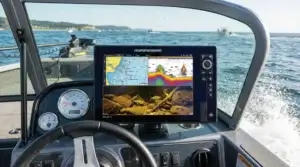
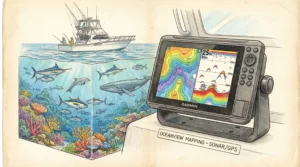
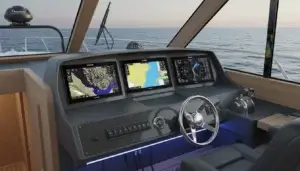
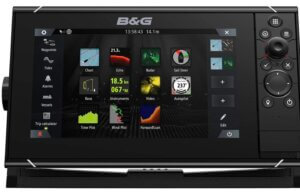
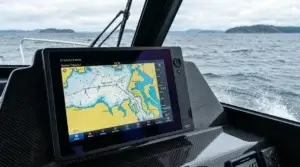

This was a solid guide. Saltwater can be sneaky, and I’ve learned that lesson the hard way while out fishing. Even the smallest splash can cause corrosion fast if you’re not careful. Lucky, we have none in South Sudan.
Do you think using a waterproof case is enough, or should people still apply anti-corrosion spray regularly? I like the idea of combining both for extra safety.
Cheers!
John
Hey John, thanks for the great comment! You’re absolutely right — saltwater is no joke when it comes to corrosion. Even a light mist can start causing issues before you notice.
A waterproof case definitely helps, especially if it’s properly sealed, but I’d still recommend applying an anti-corrosion spray every now and then — it adds that extra layer of protection and peace of mind. Combining both is the smart move, just like you mentioned.
Cheers, and glad to hear you don’t have to battle saltwater in South Sudan!